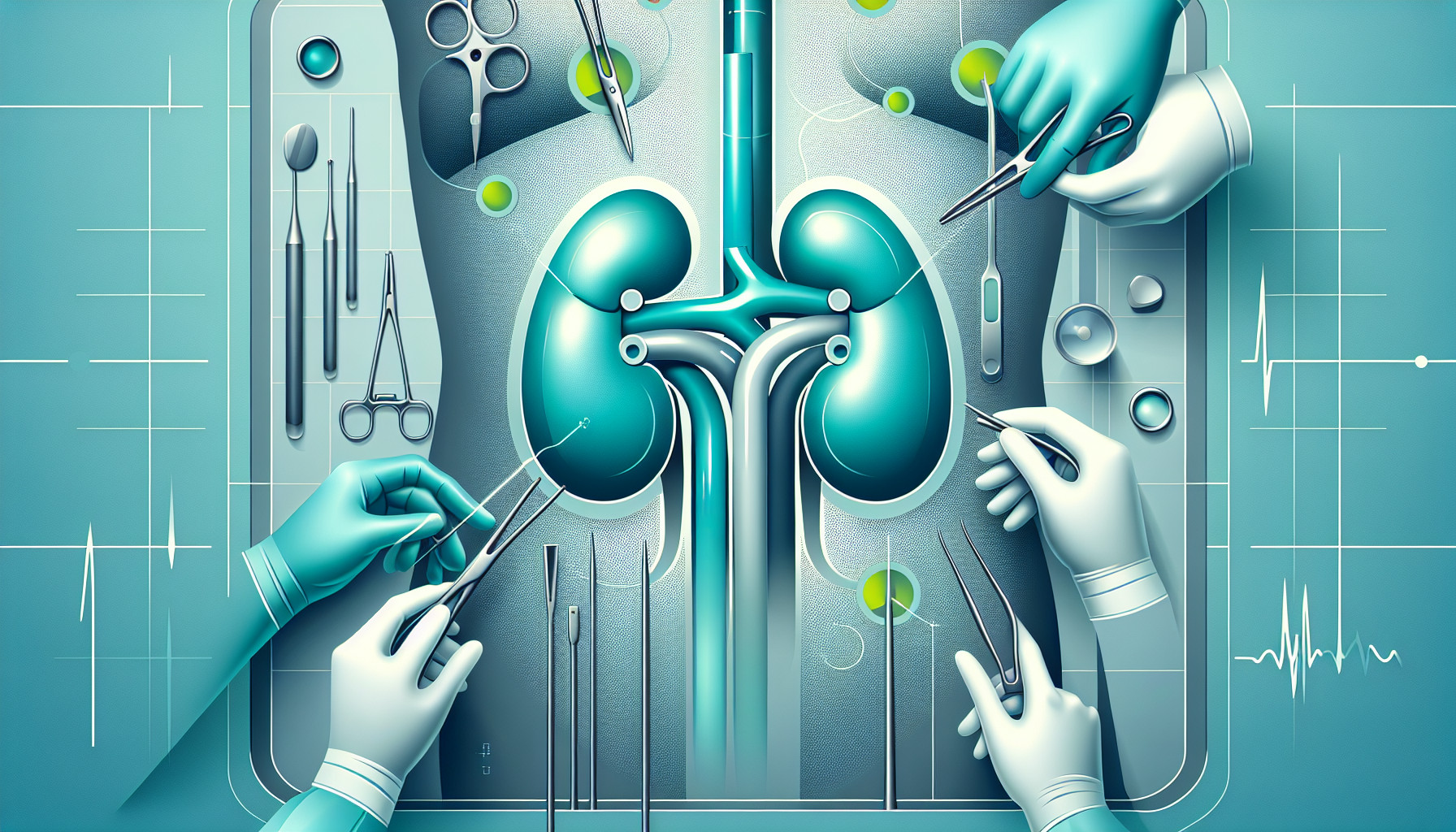Our Summary
The research paper focuses on whether to perform a combined heart-kidney transplant (HKT) or just a heart transplant (IHT) on obese patients suffering from severe kidney disease. The researchers looked at data from adult heart transplant recipients between 2000 and 2022. The patients they studied were all obese, had a particular level of kidney function and were not on dialysis before the transplant.
The researchers compared 289 patients who received a HKT and 1920 patients who received an IHT. They found that the patients who received both heart and kidney transplants had higher survival rates after 5 and 10 years compared to those who only received a heart transplant.
The study suggests that for obese patients with severe kidney disease, a combined heart-kidney transplant could reduce the risk of death in the long term compared to just a heart transplant. So, HKT should be strongly considered as the preferred treatment option for these patients.
FAQs
- What was the main focus of the research paper on kidney transplants?
- How do the survival rates differ between obese patients who received a combined heart-kidney transplant and those who only received a heart transplant?
- What does the study suggest as the preferred treatment option for obese patients with severe kidney disease?
Doctor’s Tip
A doctor might tell a patient considering a kidney transplant to carefully consider the option of a combined heart-kidney transplant if they are obese and have severe kidney disease. This type of transplant could potentially lead to better long-term survival rates compared to just receiving a heart transplant. It is important for the patient to discuss all treatment options with their healthcare team to determine the best course of action for their individual situation.
Suitable For
Patients who are typically recommended for a kidney transplant include those with end-stage renal disease (ESRD) who have exhausted all other treatment options, have good overall health aside from their kidney disease, and have a suitable living or deceased donor available. Additionally, patients with certain chronic conditions such as diabetes or autoimmune diseases may also be recommended for a kidney transplant if their kidney function is severely compromised. Ultimately, the decision to recommend a kidney transplant is based on the individual patient’s medical history, overall health, and potential for a successful outcome.
Timeline
Before kidney transplant:
- Patient is diagnosed with severe kidney disease and is evaluated by a transplant team.
- Patient undergoes extensive medical and psychological evaluations to determine eligibility for a transplant.
- Patient is placed on the transplant waiting list and waits for a suitable donor match.
- Patient undergoes dialysis treatment to manage kidney function while waiting for a transplant.
- Once a suitable donor match is found, patient undergoes surgery for the kidney transplant.
After kidney transplant:
- Patient undergoes post-operative care and monitoring in the hospital.
- Patient is prescribed immunosuppressant medications to prevent rejection of the transplanted kidney.
- Patient undergoes regular follow-up appointments with the transplant team to monitor kidney function and overall health.
- Patient adjusts to life with a transplanted kidney, including making lifestyle changes to support kidney health.
- Patient experiences improved kidney function and overall health, with the potential for a longer and better quality of life compared to before the transplant.
What to Ask Your Doctor
- What are the risks and benefits of a combined heart-kidney transplant compared to just a heart transplant for someone with severe kidney disease and obesity?
- How will having a kidney transplant in addition to a heart transplant affect my recovery time and overall health outcomes?
- What is the success rate of combined heart-kidney transplants in obese patients with severe kidney disease?
- How will having both transplants impact my medication regimen and overall treatment plan?
- What additional follow-up care will be required after a combined heart-kidney transplant compared to just a heart transplant?
- Are there any specific criteria I need to meet in order to be considered for a combined heart-kidney transplant?
- How will having both transplants affect my quality of life in the long term?
- What are the potential complications or challenges that may arise from having both transplants?
- How will having a combined heart-kidney transplant impact my long-term prognosis compared to just having a heart transplant?
- Are there any alternative treatment options available for someone with severe kidney disease and obesity that should be considered before proceeding with a combined heart-kidney transplant?
Reference
Authors: Weingarten N, Iyengar A, Herbst DA, Helmers M, Rekhtman D, Song C, Kim ST, Atluri P. Journal: Eur J Cardiothorac Surg. 2022 Dec 2;63(1):ezac563. doi: 10.1093/ejcts/ezac563. PMID: 36534819
